Related Research Articles

Hugo Gernsback was a Luxembourgish American editor and magazine publisher whose publications included the first science fiction magazine, Amazing Stories. His contributions to the genre as publisher were so significant that, along with the novelists Jules Verne and H. G. Wells, he is sometimes called "The Father of Science Fiction". In his honor, annual awards presented at the World Science Fiction Convention are named the "Hugos".
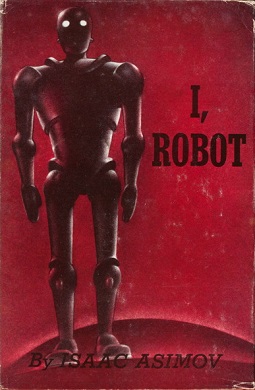
I, Robot is a fixup collection made up of science fiction short stories by American writer Isaac Asimov. The stories originally appeared in the American magazines Super Science Stories and Astounding Science Fiction between 1940 and 1950 and were then compiled into a single publication by Gnome Press in 1950, in an initial edition of 5,000 copies.

Gregory Dale Bear was an American science fiction writer. His work covered themes of galactic conflict, parallel universes, consciousness and cultural practices, and accelerated evolution. His last work was the 2021 novel The Unfinished Land. Greg Bear wrote over 50 books in total.
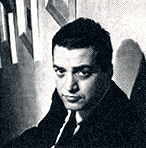
Alfred Bester was an American science fiction author, TV and radio screenwriter, magazine editor and scriptwriter for comics. He is best remembered for his science fiction, including The Demolished Man, winner of the inaugural Hugo Award in 1953.

James White was a Northern Irish author of science fiction novellas, short stories and novels. He was born in Belfast and returned there after spending some early years in Canada. After a few years working in the clothing industry, he worked at Short Brothers Ltd., an aircraft company based in Belfast, from 1965 until taking early retirement in 1984 as a result of diabetes. White married Margaret Sarah Martin, another science fiction fan, in 1955 and the couple had three children. He died of a stroke.
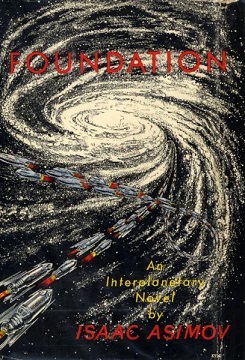
The Foundation series is a science fiction book series written by American author Isaac Asimov. First published as a series of short stories and novellas in 1942–50, and subsequently in three books in 1951–53, for nearly thirty years the series was widely known as The Foundation Trilogy: Foundation (1951), Foundation and Empire (1952), and Second Foundation (1953). It won the one-time Hugo Award for "Best All-Time Series" in 1966. Asimov later added new volumes, with two sequels, Foundation's Edge (1982) and Foundation and Earth (1986), and two prequels, Prelude to Foundation (1988) and Forward the Foundation (1993).
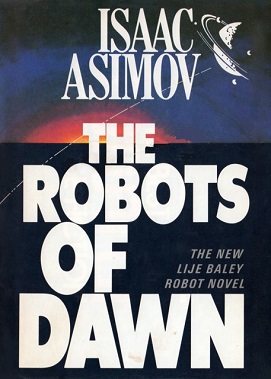
The Robot Series is a series of thirty-seven science fiction short stories and six novels created by American writer Isaac Asimov, from 1940 to 1995. The series is set in a world where sentient positronic robots serve a number of purposes in society. To ensure their loyalty, the Three Laws of Robotics are programmed into these robots, with the intent of preventing them from ever becoming a danger to humanity. Later, Asimov would merge the Robot series with his Foundation series.

Geoffrey Alan Landis is an American aerospace engineer and author, working for the National Aeronautics and Space Administration (NASA) on planetary exploration, interstellar propulsion, solar power and photovoltaics. He holds nine patents, primarily in the field of improvements to solar cells and photovoltaic devices and has given presentations and commentary on the possibilities for interstellar travel and construction of bases on the Moon, Mars, and Venus.

Glen David Brin is an American science fiction author. He has won the Hugo, Locus, Campbell and Nebula Awards. His novel The Postman was adapted into a 1997 feature film starring Kevin Costner.
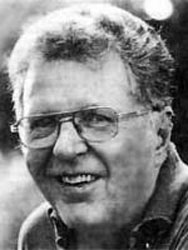
Walter Michael Miller Jr. was an American science fiction writer. His fix-up novel, A Canticle for Leibowitz (1959), the only novel published in his lifetime, won the 1961 Hugo Award for Best Novel. Prior to its publication, he was a writer of short stories.

Ted Chiang is an American science fiction writer. His work has won four Nebula awards, four Hugo awards, the John W. Campbell Award for Best New Writer, and six Locus awards. He has published the short story collections Stories of Your Life and Others (2002) and Exhalation: Stories (2019). His short story "Story of Your Life" was the basis of the film Arrival (2016). He was an artist in residence at the University of Notre Dame in 2020–2021. Chiang is also a frequent non-fiction contributor to the New Yorker Magazine, most recently on topics related to computer technology, such as artificial intelligence.
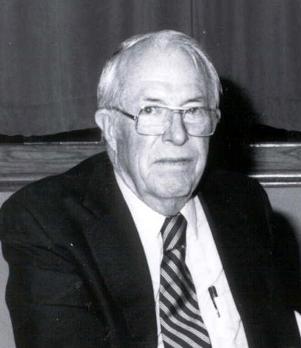
John Stewart Williamson, who wrote as Jack Williamson, was an American science fiction writer, one of several called the "Dean of Science Fiction". He is also credited with one of the first uses of the term genetic engineering. Early in his career he sometimes used the pseudonyms Will Stewart and Nils O. Sonderlund.
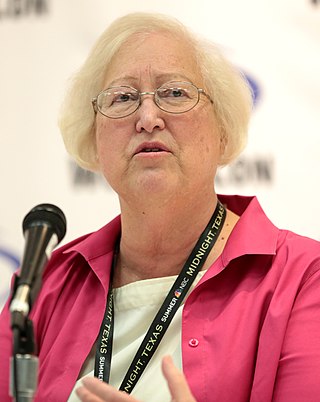
Constance Elaine Trimmer Willis, commonly known as Connie Willis, is an American science fiction and fantasy writer. She has won eleven Hugo Awards and seven Nebula Awards for particular works—more major SF awards than any other writer—most recently the "Best Novel" Hugo and Nebula Awards for Blackout/All Clear (2010). She was inducted by the Science Fiction Hall of Fame in 2009 and the Science Fiction Writers of America named her its 28th SFWA Grand Master in 2011.

Michael Diamond Resnick was an American science fiction writer and editor. He won five Hugo awards and a Nebula award, and was the guest of honor at Chicon 7. He was the executive editor of the defunct magazine Jim Baen's Universe, and the creator and editor of Galaxy's Edge magazine.
"Runaround" is a science fiction short story by American writer Isaac Asimov, featuring his recurring characters Powell and Donovan. It was written in October 1941 and first published in the March 1942 issue of Astounding Science Fiction. It appears in the collections I, Robot (1950), The Complete Robot (1982), and Robot Visions (1990). In 2018, "Runaround" was nominated for a retrospective 1943 Hugo Award for best short story. The story features the first explicit appearance of the Three Laws of Robotics.
James Alan Gardner is a Canadian science fiction author.

John Michael Scalzi II is an American science fiction author and former president of the Science Fiction and Fantasy Writers of America. He is best known for his Old Man's War series, three novels of which have been nominated for the Hugo Award, and for his blog Whatever, where he has written on a number of topics since 1998. He won the Hugo Award for Best Fan Writer in 2008 based predominantly on that blog, which he has also used for several charity drives. His novel Redshirts won the 2013 Hugo Award for Best Novel. He has written non-fiction books and columns on diverse topics such as finance, video games, films, astronomy, writing and politics, and served as a creative consultant for the TV series Stargate Universe.

The 56th World Science Fiction Convention (Worldcon), also known as BucConeer, was held on 5–9 August 1998 at the Baltimore Convention Center, the Baltimore Marriott Inner Harbor, the Holiday Inn Inner Harbor, the Omni Inner Harbor Baltimore, and the Baltimore Hilton and Towers in Baltimore, Maryland, United States.
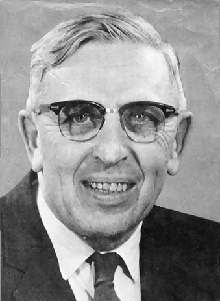
Clifford Donald Simak was an American science fiction writer. He won three Hugo Awards and one Nebula Award. The Science Fiction Writers of America made him its third SFWA Grand Master, and the Horror Writers Association made him one of three inaugural winners of the Bram Stoker Award for Lifetime Achievement. He is associated with the pastoral science fiction subgenre.

Ken Liu is an American author of science fiction and fantasy. Liu has won multiple Hugo and Nebula Awards for his novel translations and original short fiction, which has appeared in F&SF, Asimov's Science Fiction, Analog, Lightspeed, Clarkesworld, and multiple "Year's Best" anthologies.
References
- ↑ 1998 Hugo nominees Archived 2008-01-12 at the Wayback Machine from Locus magazine